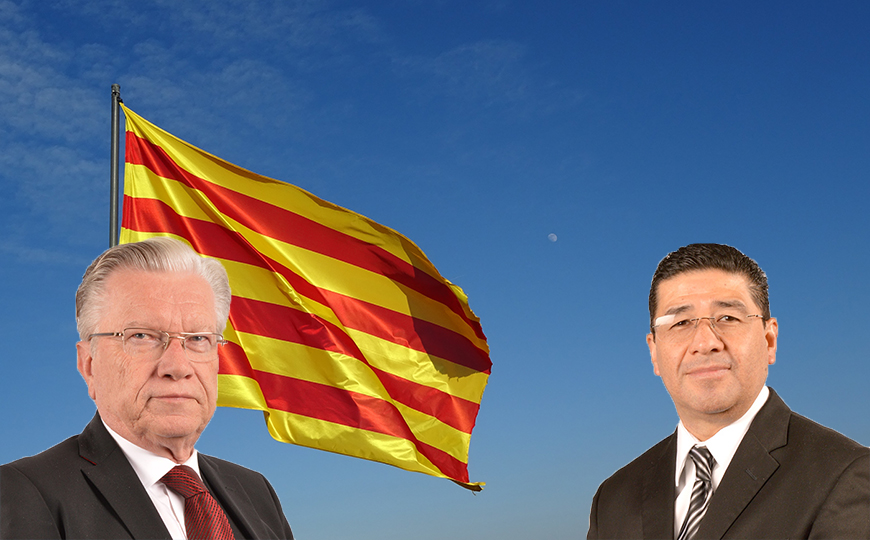The shocking violence in Barcelona on Sunday, October 1st, when police in riot gear viciously beat citizens attempting to vote in a referendum for Catalonian independence, and left a staggering 893 persons injured, makes it hard to shake the impression of a brutal, oppressive state under President Rajoy attempting to undermine democratic expression. Looking on, the world saw echoes of Spain’s Fascist past and dark hints of what might lurk in Europe’s unsettled future – especially with a formal declaration of independence scheduled by the Generalitat de Catalunya for Monday, October 9th. The vote count in the referendum revealed that 90% of the ballots were cast for independence. While the independence debate has degenerated into street battles and a general strike, it also reveals a broader confrontation of Spain’s power elites that is almost as worrying as the violence.
Catalonia, a region of 7.5 million inhabitants, occupies a privileged but marginalized role in post-Franco Spain. The region has 16% of Spain’s population but contributes more than 25% to the national GDP, 25% of its exports and 20% of the national budget. Despite brutal suppression under Franco’s dictatorship, the region has retained its distinct identity, ethnicity and language and has become an economic powerhouse. Catalonia, however, has never quite gotten its fair share of national political power. The autonomy written into Spain’s national system means that the region has considerable say in its own internal affairs – the regional government, the Generalitat de Catalunya, has substantial local jurisdiction in many areas but national institutional executive influence has always remained fiercely guarded in Madrid. With the rest of Spain continuing to flounder economically, the people of Cataluña have lost all faith in the central state’s ability to solve Spain’s problems: they simply want out. In all of this, the central government has also been accused of using the separatist debate to distract the general population from Rajoy’s myriad other problems. His government has failed to take advantage of numerous opportunities to defuse the situation, in part because anti-Calalan saber-rattling seems to be an aphrodisiac to his political base. The question, then, presents itself: why did the government in Madrid risk the present crisis by cracking down so brutally? Essentially, because the referendum and the upcoming declaration of independence are a mortal challenge to not just to its authority but even more: to Spain’s economic survival! While Catalonia’s secession will constitute a direct violation of Spain’s 1978 constitution which holds the country to be indivisible, from the perspective of international law and modern state practice, however, Catalonia has the absolute right of a self-determination unit of limited autonomy to secede from Spain. The effect of such a step would be devastating: Spain’s economy would most likely collapse and Catalonia would no longer be a part of the European Union without any chance of ever being admitted as a member state. Since admission requires unanimity, Spain’s no vote would leave Catalonia out in the cold forever. Mexico, under this scenario, would lose 7.5 billion dollars in exports to Spain annually and also its substantial investments in our economy. Spain, it must be emphasized, is presently the second most important investor (after the U.S.) in our country. However, it is also important to note that Catalonia will recover an average of 20,000,000,000.00 euros per year in the Gross Domestic Product, which places it as an important economic region to do business with this new state in Europe. In that sense, what should be the strategy that Mexico must follow to design its foreign and commercial policy for the new world order? We must remember that not only must we continue with the bilateral trade agenda with the United Kingdom but now we must consider that new separatist movements have begun in the world. Apart from Catalonia, there is also Scotland, the Flanders region in Belgium, the Basque region in Spain, Ireland, among others.




